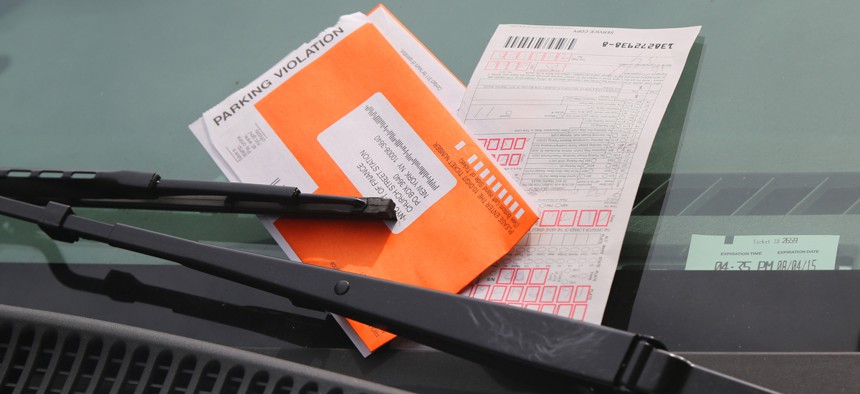Chalking Tires to Track Parking Violators Is Unconstitutional, Court Rules

Leonard Zhukovsky/Shutterstock
A woman filed a lawsuit against Saginaw, Michigan after she racked up 15 parking tickets.
A common practice used by parking enforcement officers across the country violates the U.S. Constitution, an appellate court ruled this week.
The problem is the chalking of car tires to keep track of how long a car is parked in a certain spot.
A woman challenged the Michigan city of Saginaw’s chalking practices in 2017 after her tires were marked 15 different times in three years—and each time she received a ticket. Lawyers representing Alison Taylor argued that the officer marking her tires with chalk amounted to unreasonable searches prohibited by the Fourth Amendment.
A panel of three judges on the 6th U.S. Circuit Court of Appeals agreed, finding that the marks indeed were a search and that no exception exists to allow this to happen without a warrant. “The City does not demonstrate, in law or logic, that the need to deter drivers from exceeding the time permitted for parking—before they have even done so—is sufficient to justify a warrantless search under the community caretaker rationale,” wrote Judge Bernice Bouie Donald.
Saginaw officials have not commented on the decision. But officials in nearby Bay City told MLive.com that they would immediately halt the practice of marking tires with chalk. The appeals court covers Michigan, Ohio, Tennessee and Kentucky.
The Tampa Bay Times reported that even though Florida is not included in the 6th Circuit, the city of Tampa has decided to stop chalking and will just use its electronic methods to monitor parked cars. Officials with other jurisdictions, like St. Petersburg, said they saw no reason to switch things up. "Chalking tires has been used for over 60 years … and is widely-used across the country as a non-invasive way to keep track of overtime parking," a city spokesman told the newspaper.
Orin Kerr, a law professor at the University of Southern California, wrote on Reason’s Volokh Conspiracy blog that he wasn’t sure the decision was correctly decided, but advised city officials to take note.
He also raised the question if the possible end of chalk marks wouldn't be a big deal in the age of the smart phone, when officers can easily take time-stamped photos of a parked car. “It may be more complicated or expensive than chalking, but it avoids the Fourth Amendment concern by just observing what is in public without any physical attachment to property,” Kerr wrote.
Laura Maggi is the Managing Editor of Route Fifty.
NEXT STORY: A State Considers How to Help Local Governments Pay for Expensive Murder Trials






